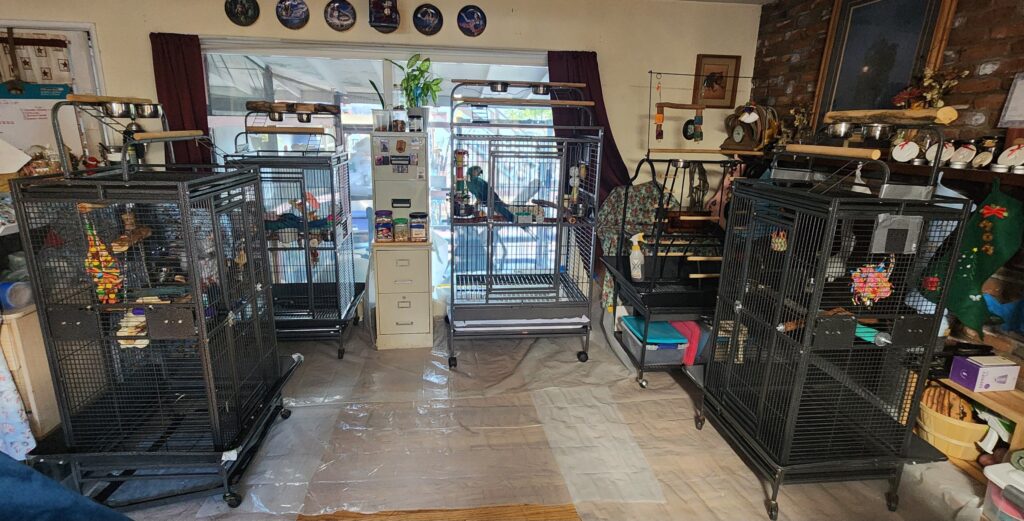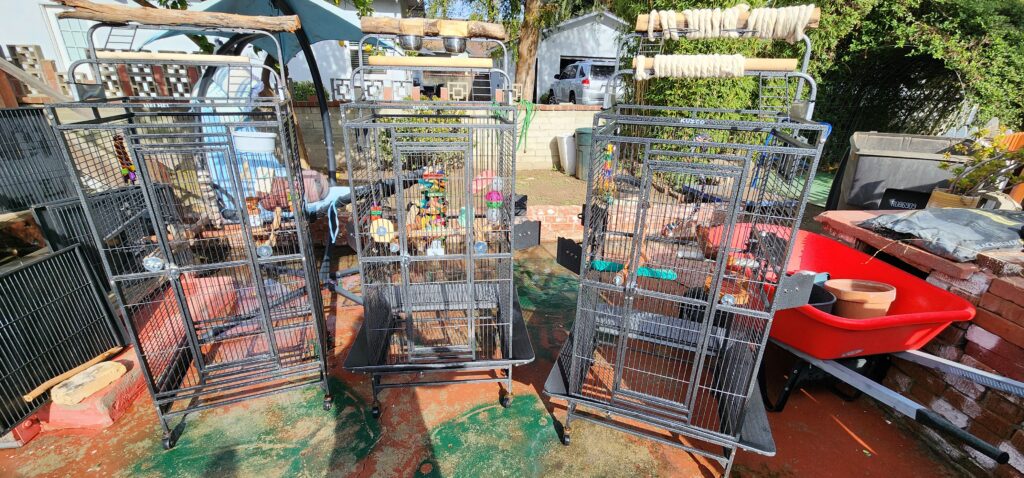
Ensuring a Healthy Environment for Your Feathered Friends
Introduction
Maintaining a clean and hygienic environment for pet birds is crucial for their health and well-being. Regular cleaning of bird cages helps prevent the buildup of harmful bacteria, mold, and allergens, ensuring that birds remain happy and disease-free.
Frequency of Cleaning
It is recommended to deep clean bird cages weekly and perform light cleaning tasks throughout the week. While some people might suggest monthly deep cleaning and bi-weekly bottom tray cleaning, more frequent cleaning is essential for optimal bird health.
Deep Cleaning
Deep cleaning involves several thorough steps. Here is a detailed procedure to ensure a comprehensive cleaning:
- Move Cages Outside: Place the bird cages on an open patio or any outdoor space.
- Prepare Cleaning Solution: In a wash tub, mix Simple Green, Dawn dish soap, and hot water. (There are other bird safe cleaning products you can use in place of Simple Green)
- Wear Protective Gear: Use eye protection and gloves to protect yourself from chemicals and debris. (Use a mask if you might inhale dust from the cage)
- High Pressure Hose: Rinse every part of the cage thoroughly with a high-pressure hose attachment.
- Scrub and Rinse: Scrub the cage with the cleaning solution, then rinse again to remove all soap residue.
- Drying: Allow the cages to dry in the sun. In winter, use a towel for drying.
- Clean Food and Water Bowls: Soak bowls in a mixture of Dawn dish soap and hot water. (Note: If you do not have a dishwasher, this step is particularly important.)

Indoor Cleaning Adjustments
Even during medical leave or when outdoor cleaning is not feasible, deep cleaning can still be done inside with some modifications:
- Protective Plastic: Lay heavy painter plastic on the floor under the cage.
- Scrubbing Tools: Use scrub brushes and water spray bottles to clean the cage.
- Paper Towels: Utilize a lot of paper towels for drying and ensuring the cage is clean.
Time Management
Typically, deep cleaning all five cages outside takes about 2 hours. However, when cleaning indoors, each cage may take approximately 2 hours due to the additional steps required for thorough cleaning.
Light Cleaning
Light cleaning tasks should be performed mid-week or more frequently if needed:
- Clean bottom trays and replace tray liners.
- Clean food and water bowls.
- Wipe down perches and cage wires, especially if there is visible food buildup.
Daily Maintenance
Maintaining cleanliness around the bird cages is also important:
- Sweep, mop, and dust around the cages daily or at least every other day.
- Ensure all windows and protective plastic/acrylic around the cages are deep cleaned regularly.
Conclusion
Regular and thorough cleaning of bird cages is essential for preventing diseases and creating a healthy living environment for birds. By following these best practices for deep and light cleaning, bird owners can ensure their feathered friends live in a clean, safe, and happy home.
